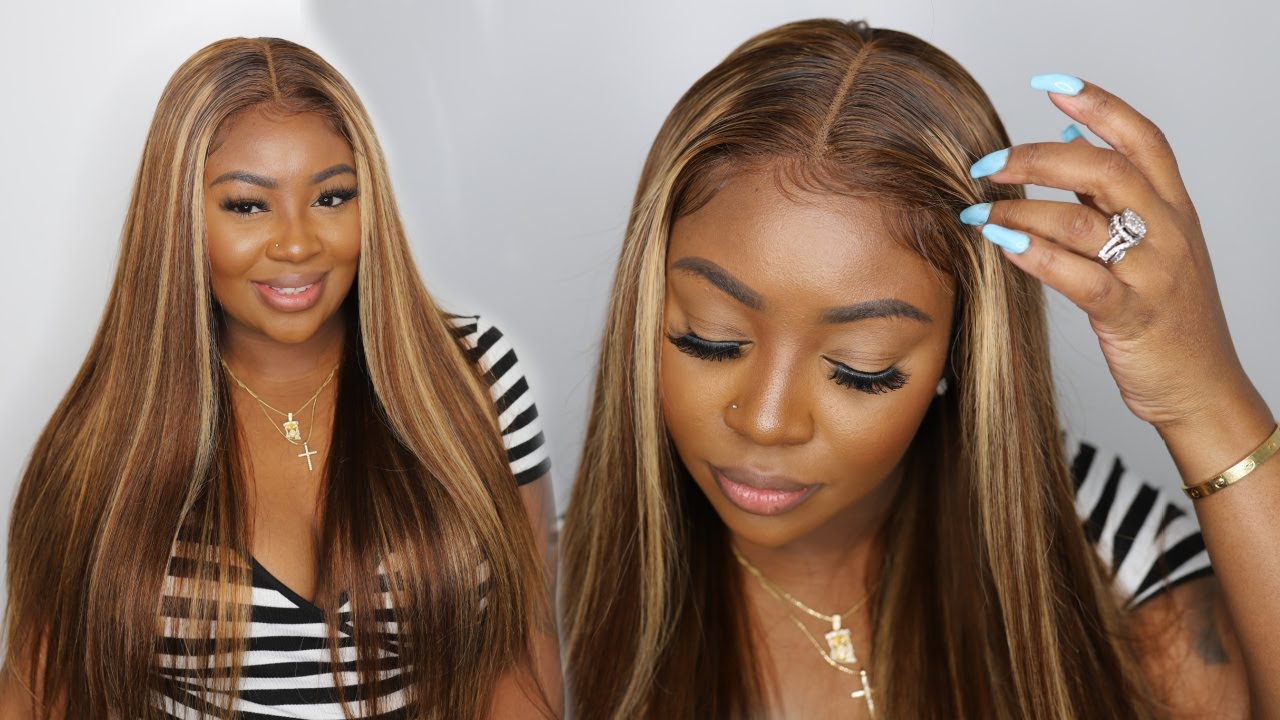Explore various hair challenges and learn how to tackle them with effective solutions, including vegan hair products. Discover the best tips for healthy, beautiful hair.
Hair challenges are a common issue faced by many people, regardless of their hair type. From dryness and frizz to thinning and breakage, these problems can be frustrating and difficult to manage. Understanding the specific challenges your hair faces and how to address them is crucial for maintaining healthy, beautiful hair. This article delves into different types of hair challenges and offers practical solutions, including the use of vegan products, to help you achieve your hair goals.
Common Hair Challenges
- Dry Hair
Dry hair lacks moisture and can appear dull and lifeless. This condition often leads to frizz, split ends, and breakage.
Causes of Dry Hair
- Environmental Factors:
Exposure to sun, wind, and pollution can strip the hair of its natural moisture, leaving it dry and brittle. Sun exposure can break down the protective lipid layer on the hair, making it more prone to dryness.
- Over-Washing:
Washing hair too frequently can strip away the natural oils that keep it moisturized. It’s important to find a balance that maintains cleanliness without over-drying the hair.
- Heat Styling:
Frequent use of hair dryers, straighteners, and curling irons can cause heat damage, leading to moisture loss and brittle hair. Heat opens up the hair cuticle, allowing moisture to escape.
- Chemical Treatments:
Coloring, perming, and relaxing treatments can damage the hair’s protein structure and deplete its natural oils, making it more susceptible to dryness.
Solutions for Dry Hair
- Hydrating Shampoos and Conditioners:
Use products specifically designed for dry hair. Look for ingredients like hyaluronic acid, glycerin, and natural oils which help retain moisture. Avoid products with sulfates and alcohols, as these can exacerbate dryness.
- Avoid Heat Styling:
Minimize the use of heat tools. When you do use them, always apply a heat protectant spray to shield your hair from high temperatures. Air-drying or using low-heat settings can also reduce damage.
- Regular Deep Conditioning:
Incorporate a deep conditioning treatment or hair mask into your routine at least once a week. These treatments penetrate the hair shaft, providing intense hydration and repair
- Vegan Products:
Opt for vegan products that are free from harsh chemicals and provide nourishing ingredients like coconut oil, aloe vera, and shea butter. These products often contain fewer irritants and more natural, hydrating components.
- Frizzy Hair
Frizzy hair can be unmanageable and difficult to style, often caused by a lack of moisture and damage to the hair cuticle.
Causes of Frizzy Hair
- Humidity:
High humidity levels cause hair to swell and become frizzy as the moisture from the air is absorbed into the hair shaft, disrupting the smooth alignment of the cuticle
- Hair Damage:
Over-styling, chemical treatments, and rough handling can damage the hair cuticle, making it more prone to frizz. Damaged cuticles do not lie flat, leading to a rough texture.
- Lack of Moisture:
Dry hair is more prone to frizz because it tries to absorb moisture from the environment, causing the hair shaft to swell and frizz.
Solutions for Frizzy Hair
1. Moisturizing Products:
Use shampoos and conditioners specifically designed for frizzy hair. Look for products with smoothing agents like silicone and natural oils that help seal the cuticle and retain moisture.
2. Leave-In Conditioners:
Apply leave-in conditioners to keep hair hydrated throughout the day. These products can provide a barrier against humidity and environmental stressors.
3. Avoid Towel Drying:
Instead of rubbing your hair with a towel, pat it dry with a microfiber towel or an old t-shirt to reduce friction and prevent the cuticle from becoming rough.
4. Vegan Hair Serums:
Use vegan hair serums that contain natural oils like argan oil, jojoba oil, or avocado oil to smooth the hair cuticle and reduce frizz. These serums can provide a protective layer that locks in moisture and adds shine.
Thinning Hair
Thinning hair can be a distressing problem, often leading to noticeable hair loss and reduced volume.
Causes of Thinning Hair
- Genetics:
A family history of hair loss can make you more prone to thinning hair. This type of hair loss is often progressive and can start at any age.
- Hormonal Changes:
Pregnancy, menopause, and thyroid issues can cause hormonal imbalances that affect hair growth and lead to thinning.
- Nutritional Deficiencies:
Lack of essential vitamins and minerals, such as biotin, iron, and zinc, can impair hair growth and contribute to hair thinning.
- Stress:
Physical and emotional stress can trigger hair loss conditions like telogen effluvium, where stress pushes hair follicles into a resting phase, causing hair to fall out more easily.
Solutions for Thinning Hair
1. Scalp Treatments:
Use treatments that stimulate the scalp and promote hair growth. Ingredients like minoxidil, caffeine, and peptides can help improve blood circulation to the scalp and encourage hair growth.
2. Healthy Diet:
Ensure a balanced diet rich in vitamins and minerals like biotin, vitamin E, and zinc. These nutrients are essential for healthy hair growth and can be found in foods like nuts, seeds, leafy greens, and eggs.
3. Gentle Hair Care:
Avoid tight hairstyles that pull on the hair and cause breakage. Use wide-tooth combs and be gentle when brushing to prevent unnecessary stress on the hair.
4. Vegan Hair Growth Products:
Look for vegan products that contain ingredients like caffeine, biotin, and saw palmetto to encourage hair growth. These products often include fewer synthetic chemicals and more natural growth-stimulating ingredients.
Split Ends
Split ends occur when the hair shaft splits, often due to damage and lack of moisture, making hair look unhealthy.
Causes of Split Ends
- Heat Styling: Frequent use of heat tools can weaken the hair shaft and cause split ends.High temperatures break down the hair’s protein structure, making it more prone to splitting.
- Chemical Treatments: Harsh chemicals in hair dyes, perms, and relaxers can damage the hair cuticle and cause it to split.
- Environmental Stressors: Sun exposure, wind, and pollution can weaken the hair shaft and lead to split ends. UV rays can break down the hair’s protein and lipid layers.
- Over-Brushing: Excessive brushing can cause mechanical damage to the hair shaft, leading to split ends. Using brushes with rough bristles can exacerbate this problem.
Solutions for Split Ends
1. Regular Trims:
Trim your hair every 6-8 weeks to remove split ends and prevent further splitting. Regular trims keep your hair looking healthy and prevent damage from traveling up the hair shaft.
2. Protective Hairstyles:
Minimize damage by wearing protective hairstyles such as braids, buns, or twists. These styles protect the ends of your hair and reduce exposure to environmental stress.
3. Avoid Heat:
Reduce the use of heat tools and always use a heat protectant when styling your hair. Lowering the temperature on heat tools can also help minimize damage.
4. Vegan Hair Masks:
Use vegan hair masks rich in nourishing oils like coconut oil, argan oil, and shea butter to strengthen and repair hair. These masks can penetrate the hair shaft and provide deep conditioning to prevent split ends.
Oily Hair
Oily hair can be difficult to manage and style, often looking greasy shortly after washing.
Causes of Oily Hair
Overactive Sebaceous Glands: Excess oil production can be due to genetics or hormonal changes, leading to greasy hair.
- Improper Hair Care:
Using products that are too heavy or not rinsing thoroughly can leave residue on the scalp, contributing to oily hair.
- Hormonal Changes:
Puberty, pregnancy, and hormonal imbalances can increase oil production in the scalp.
Solutions for Oily Hair
1. Clarifying Shampoos:
Use clarifying shampoos to remove excess oil and buildup from the scalp. Look for shampoos with ingredients like tea tree oil, which has natural astringent properties.
- Avoid Heavy Conditioners:
Use lightweight conditioners and apply them only to the ends of the hair. Avoid applying conditioner to the scalp, as this can make hair greasy.
- Regular Washing:
Wash your hair regularly but not excessively to maintain a balance. Over-washing can strip the scalp of natural oils, leading to increased oil production.
- Vegan Dry Shampoos:
Use vegan dry shampoos to absorb excess oil and refresh hair between washes. Dry shampoos can help extend the time between washes and keep your hair looking clean and voluminous.
Vegan Hair Products: The Ideal Solution
Vegan products offer a gentle, eco-friendly solution to various hair challenges. These products are free from animal-derived ingredients and harsh chemicals, making them suitable for all hair types.
Benefits of Vegan Hair Products
- Natural Ingredients:
Vegan products are packed with nourishing natural ingredients like coconut oil, aloe vera, and argan oil. These ingredients provide essential nutrients and hydration to the hair without the use of synthetic chemicals.
- Cruelty-Free:
Vegan products are not tested on animals, aligning with ethical and environmental values. This commitment to cruelty-free practices ensures that your hair care routine does not contribute to animal suffering.
- Gentle on Hair:
Vegan products are free from sulfates, parabens, and silicones, which can be harsh on the hair and scalp. These products reduce the risk of irritation, dryness, and damage, making them ideal for sensitive scalps and maintaining the natural balance of your hair.
- Sustainable:
Many vegan hair products come in eco-friendly packaging and support sustainable practices. This commitment to sustainability helps reduce environmental impact and promotes a healthier planet.
Conclusion
Dealing with various hair challenges can be daunting, but understanding the causes and implementing the right solutions can make a significant difference. Whether you struggle with dry hair, frizz, thinning hair, split ends, or oily hair, there are effective strategies and products to help you manage and improve your hair health.
Vegan hair products offer a natural, effective way to address these issues while aligning with ethical and environmental values. By choosing products that are free from animal-derived ingredients and harsh chemicals, you can ensure that your hair care routine is gentle, nourishing, and sustainable.
–


